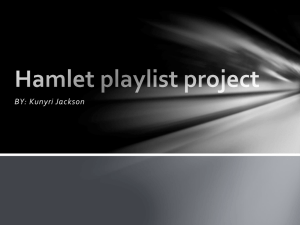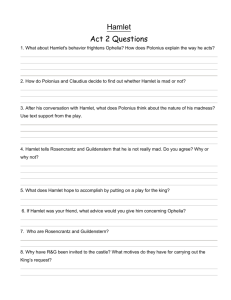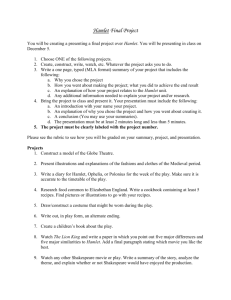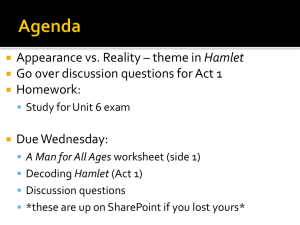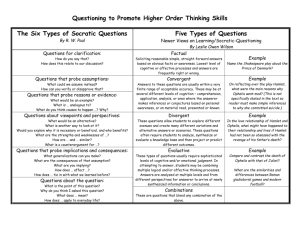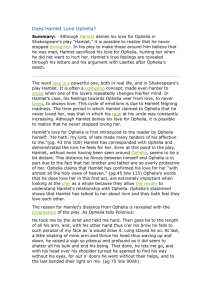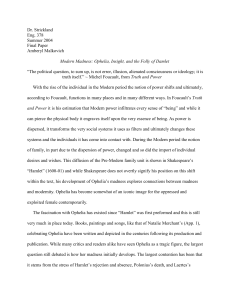1/11 Advice to Future Readers of Hamlet
advertisement
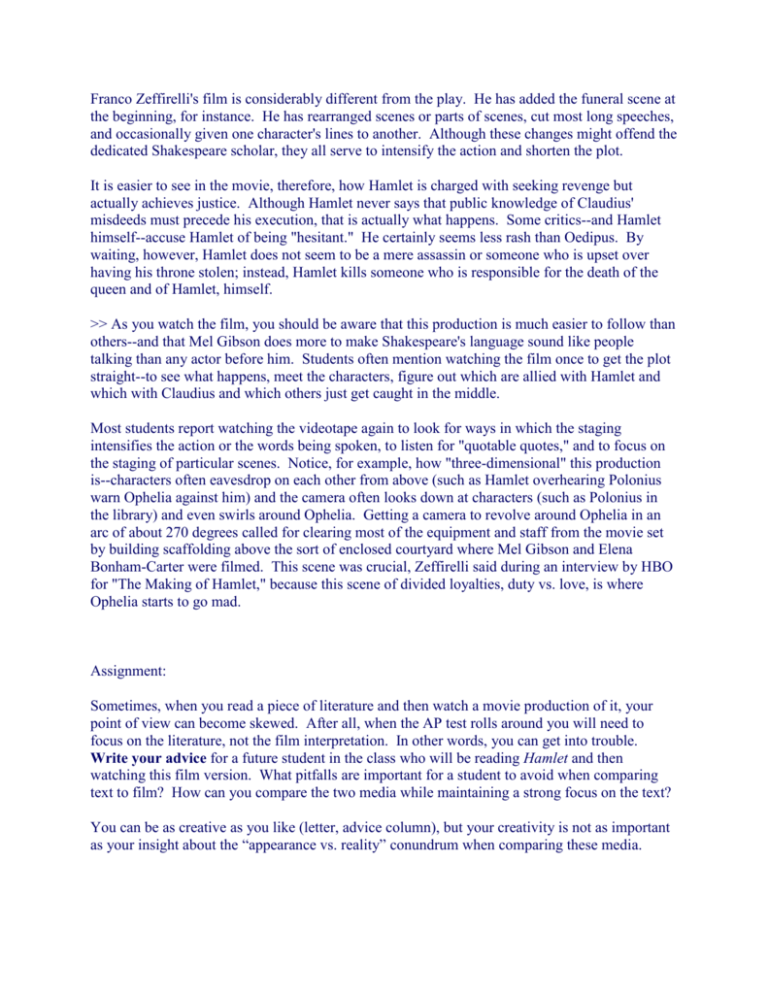
Franco Zeffirelli's film is considerably different from the play. He has added the funeral scene at the beginning, for instance. He has rearranged scenes or parts of scenes, cut most long speeches, and occasionally given one character's lines to another. Although these changes might offend the dedicated Shakespeare scholar, they all serve to intensify the action and shorten the plot. It is easier to see in the movie, therefore, how Hamlet is charged with seeking revenge but actually achieves justice. Although Hamlet never says that public knowledge of Claudius' misdeeds must precede his execution, that is actually what happens. Some critics--and Hamlet himself--accuse Hamlet of being "hesitant." He certainly seems less rash than Oedipus. By waiting, however, Hamlet does not seem to be a mere assassin or someone who is upset over having his throne stolen; instead, Hamlet kills someone who is responsible for the death of the queen and of Hamlet, himself. >> As you watch the film, you should be aware that this production is much easier to follow than others--and that Mel Gibson does more to make Shakespeare's language sound like people talking than any actor before him. Students often mention watching the film once to get the plot straight--to see what happens, meet the characters, figure out which are allied with Hamlet and which with Claudius and which others just get caught in the middle. Most students report watching the videotape again to look for ways in which the staging intensifies the action or the words being spoken, to listen for "quotable quotes," and to focus on the staging of particular scenes. Notice, for example, how "three-dimensional" this production is--characters often eavesdrop on each other from above (such as Hamlet overhearing Polonius warn Ophelia against him) and the camera often looks down at characters (such as Polonius in the library) and even swirls around Ophelia. Getting a camera to revolve around Ophelia in an arc of about 270 degrees called for clearing most of the equipment and staff from the movie set by building scaffolding above the sort of enclosed courtyard where Mel Gibson and Elena Bonham-Carter were filmed. This scene was crucial, Zeffirelli said during an interview by HBO for "The Making of Hamlet," because this scene of divided loyalties, duty vs. love, is where Ophelia starts to go mad. Assignment: Sometimes, when you read a piece of literature and then watch a movie production of it, your point of view can become skewed. After all, when the AP test rolls around you will need to focus on the literature, not the film interpretation. In other words, you can get into trouble. Write your advice for a future student in the class who will be reading Hamlet and then watching this film version. What pitfalls are important for a student to avoid when comparing text to film? How can you compare the two media while maintaining a strong focus on the text? You can be as creative as you like (letter, advice column), but your creativity is not as important as your insight about the “appearance vs. reality” conundrum when comparing these media.


